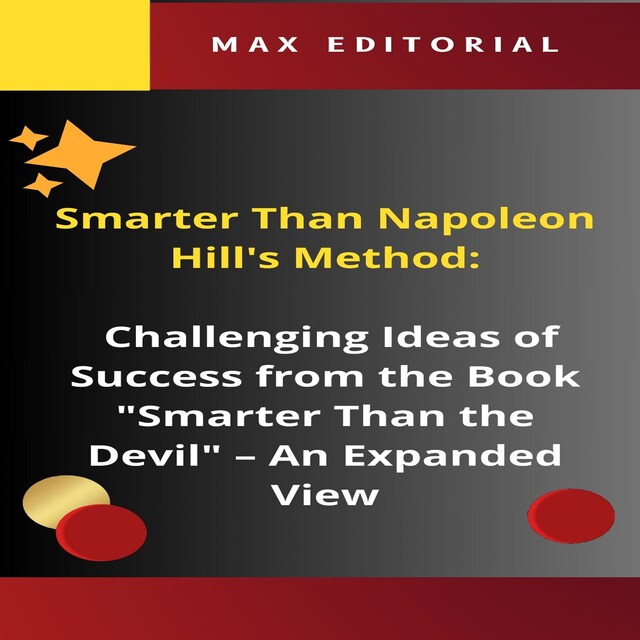
Smarter Than Napoleon Hill's Method: Challenging Ideas of Success from the Book "Smarter Than the Devil"
An Expanded View
Opis książki
Napoleon Hill's book "Smarter Than the Devil" served as a beacon for many in search of this understanding. However, as we absorb the powerful lessons of this book, we are urged to go further, to dive deeper, and to further challenge our preconceived ideas.
It is in this spirit that I present this ebook, an unprecedented complement to Hill's work, entitled " Smarter Than Napoleon Hill's Method: Challenging the Ideas of Success in the Book "Smarter Than the Devil" - Expanded View
". Here, we will explore concepts, strategies and reflections that go beyond what was discussed in "Smarter Than the Devil", offering a more contemporary and in-depth view on how to achieve success in our lives.
Revisiting the Teachings of "Smarter Than the Devil": A Constructive Criticism
Although Napoleon Hill's "Smarter Than the Devil" has become a classic of self-help literature, revisiting his teachings in light of contemporary experience and knowledge, we can identify points that deserve critical analysis.
1. The Blind Search for Success:
Hill emphasizes the importance of burning desire and persistence in achieving success. However, this unbridled pursuit can lead to obsession, neglecting other important aspects of life such as relationships, mental health and well-being. It is crucial to seek success with balance and consideration, recognizing that happiness is not limited to material achievements.
2. The Devil's Dichotomous View:
The characterization of the "devil" as a personified entity that impedes success can be interpreted as a simplistic view of reality. The difficulties and obstacles we encounter in life are usually the result of complex factors, such as socioeconomic and structural circumstances and even bad luck. Attributing all impediments to an external force can lead to victimization and passivity.
3. Lack of Emphasis on Empathy and Cooperation:
The book's individualistic focus, while motivating, fails to recognize the importance of collaboration and empathy on the path to success. Building healthy relationships and the ability to work together are essential elements for personal and professional growth in an increasingly interconnected society.
4. The Absence of Critical Reflection:
"Smarter Than the Devil" proposes an uncritical view of success, ignoring the nuances and ethical dilemmas that may arise in its pursuit. It is essential to develop a critical stance that questions the motivations behind success and evaluates the impact of your actions on the world and people around you.
5. The Need to Adapt to Changes:
Written in a specific historical context, the book does not contemplate the social, technological and economic changes that shape the contemporary world. When revisiting his teachings, it is necessary to adapt them to the current reality, recognizing new challenges and opportunities.
"Smarter Than the Devil" offers valuable insights into the importance of self-knowledge, discipline and persistence. However, it is important to revisit his teachings with a critical sense, recognizing their limitations and adapting them to the realities and challenges of the contemporary world. The search for success must be balanced with other aspects of life, prioritizing ethics, empathy and social responsibility.
Learn Much More...


